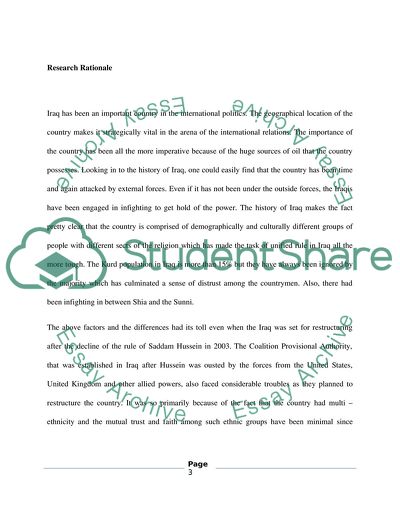Cite this document
(“The dilemma of state-building in Iraq: the challenges and difficulties Essay”, n.d.)
Retrieved de https://studentshare.org/miscellaneous/1565033-the-dilemma-of-state-building-in-iraq-the-challenges-and-difficulties-in-reconstructing-iraq-by-iraqi-people
Retrieved de https://studentshare.org/miscellaneous/1565033-the-dilemma-of-state-building-in-iraq-the-challenges-and-difficulties-in-reconstructing-iraq-by-iraqi-people
(The Dilemma of State-Building in Iraq: The Challenges and Difficulties Essay)
https://studentshare.org/miscellaneous/1565033-the-dilemma-of-state-building-in-iraq-the-challenges-and-difficulties-in-reconstructing-iraq-by-iraqi-people.
https://studentshare.org/miscellaneous/1565033-the-dilemma-of-state-building-in-iraq-the-challenges-and-difficulties-in-reconstructing-iraq-by-iraqi-people.
“The Dilemma of State-Building in Iraq: The Challenges and Difficulties Essay”, n.d. https://studentshare.org/miscellaneous/1565033-the-dilemma-of-state-building-in-iraq-the-challenges-and-difficulties-in-reconstructing-iraq-by-iraqi-people.


